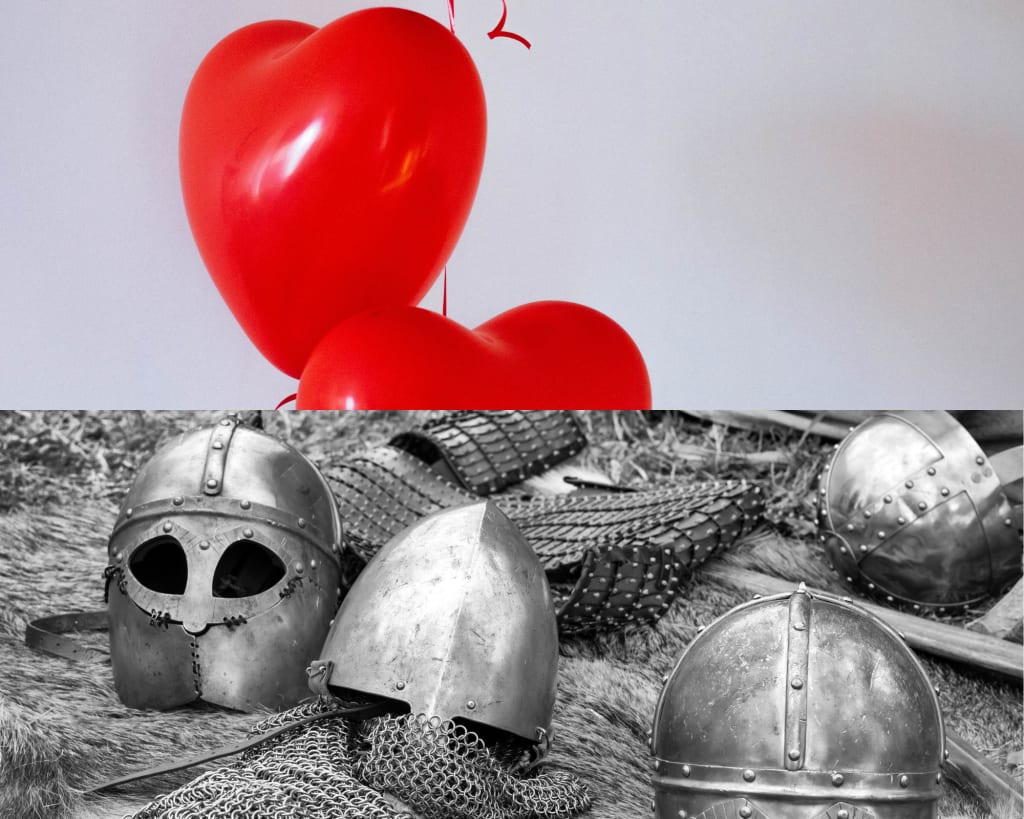Unveiling the Paradox of Fairness in Love and War
Love and War

Welcome to this intriguing exploration of the similarities between love and war. It's a thought-provoking topic that raises the age-old question: is everything fair in love and war? Let's delve into it and discover where the boundaries lie.
When it comes to writing, we often use pencils to jot down our thoughts. But did you know that pencil lead, or graphite, is made up of carbon atoms organized into a stone-like structure? So, even though pencil marks are erasable, they technically remain written in stone. Quite fascinating, right?
Now, let's shift our focus to the world of video games. Have you ever wondered why the bad guys in games seem to follow predictable patterns instead of simply charging straight at you? This phenomenon has a fantastic name: "mook chivalry." It's almost as if there's an unwritten agreement in the gaming realm to prioritize fun and a captivating story over reality or common sense.
But here's the catch – we humans aren't so different from those video game enemies. Even in real life, we often create self-imposed obstacles that hinder our pursuit of noble goals like truth, justice, and doing what's right. It's intriguing how we can complicate things, isn't it?
Speaking of complications, not everything is fair in love and war. It's the exceptions that truly shape our identities. Throughout history, war has witnessed practices like torturing enemies for information or even for sheer pleasure. However, in the late 19th century, Henry Dunant established the Red Cross and introduced a moral code of warfare known as the Geneva Conventions. These conventions, now followed by 196 nations, aim to ensure that certain rules and principles are upheld during times of conflict.
While these rules may be disregarded by some, they reflect the values we hold dear. Interestingly, the laws of war also extend protection to symbols, cultural landmarks, and humanitarian infrastructure. It's considered a violation of these laws to attack or impersonate entities that are meant to provide assistance or hold cultural significance. This concept of perfidy, deceiving adversaries by pretending to act fairly, exposes our desire for dignity and respect even in the midst of warfare.
Moving away from the realm of war, let's explore the idea of fairness in other domains. Sportsmanship is a prime example. Athletes willingly abide by rules and regulations to avoid unfair advantages, valuing the spirit of the game above victory at any cost. Similarly, in U.S. courtrooms, the concept of "lovesmanship" comes into play. Spousal privilege protects the bond of love, allowing spouses to refuse testifying against each other, prioritizing the sacredness of love over immediate truth-seeking.
Yet, it's important to note that love and war differ in the stakes involved. While certain behaviors considered unfair may be forgiven or even recommended in the context of love or war, they are not treated equally by society or the law. Love, as a deeply personal and complex human condition, does not have an official set of rules like the laws of war. We cannot prosecute someone for heartbreak or hold gravity accountable for making things fall.
Love, often described as a force beyond reasoning, holds a unique position. We may cheer for friends or fictional characters who follow their hearts, even if it means leaving others behind. Does this imply that love provides a better excuse for questionable behavior than war? Not when it comes to criminal acts, of course, but in our collective consciousness, war is a human invention, while love is an intrinsic part of our nature.
In conclusion, the boundaries of fairness in love and war are intriguingly subjective. While laws govern certain aspects of war, there is no official law for matters of the heart. Broken bones fall under the domain of legal consequences, while broken hearts evoke sympathy and understanding. Love, with all its complexities, seems to operate within its own realm, where societal judgments and regulations have limited power.





Comments
There are no comments for this story
Be the first to respond and start the conversation.